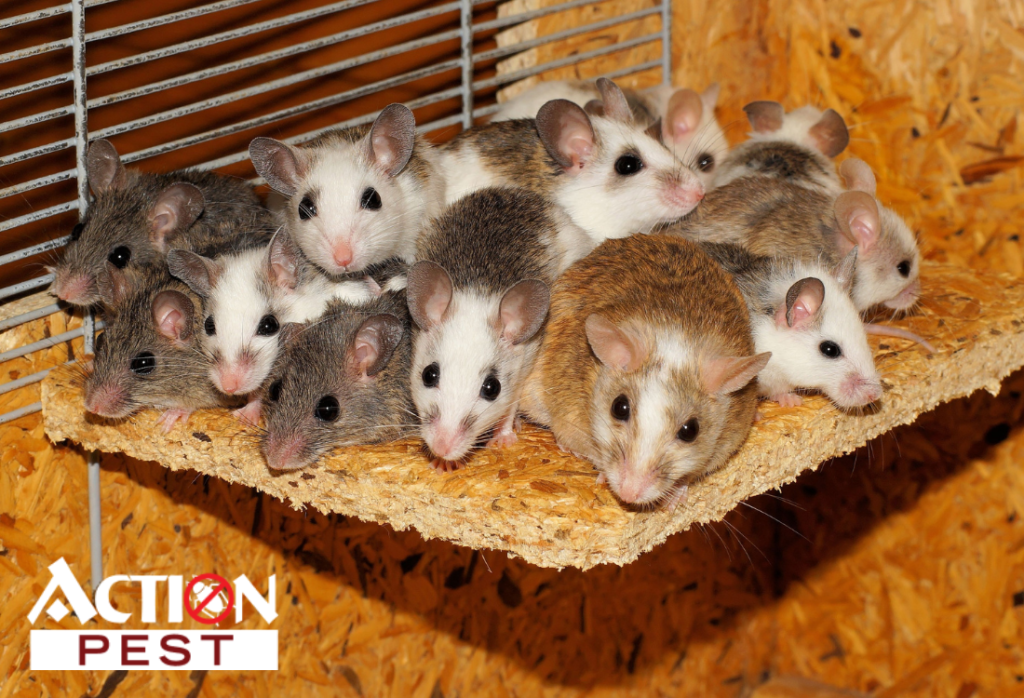
You’ve turned on your HVAC unit and all of a sudden you immediately wish you hadn’t! The skittering noises you’ve been hearing in the ceiling at night suddenly becomes louder and a strong odour starts coming from the vents. You’ve discovered that there are mice in air ducts. Now, what are you going to do about it? Mice are a common problem for property owners. They chew holes in food containers and damage your property and leave droppings along their main pathways.
When you get mice in air ducts and HVAC units, you’ve got a bigger challenge to face. It’s hard to reach which means it won’t be easy to lay traps in these spaces. At Action Pest, we can help you solve your mouse problem, allowing you to enjoy air conditioning this summer without exposing your family to bad smells and airborne debris. To find out why mice are attracted to your air ducts and HVAC units, how you can tell if you’ve got an infestation and ways to rodent-proof your HVAC system.
Why Are You Finding Mice in Air Ducts and HVAC Units?
Like other rodents, mice look for shelter wherever they can find it. During the winter months, they find relief from the cold and elements in residential and commercial HVAC systems. As long as they don’t venture through the ductwork into the property itself, they can remain practically undetected until their presence becomes impossible to ignore.
How Can You Tell if Mice Are in Your Air Ducts?
Once mice get into your ductwork through the HVAC equipment outside, they’ll start procreating and leaving their waste inside the unit. In a lot of instances, they’ll also get into your home or business in search of food. This is when you’ll notice the worst signs of their presence which include:
- Irregular Noise: When mice run through the ductwork, it creates noises that you should be able to hear, especially during nighttime. You may also hear chewing noises, mild squeaking, and scratches.
- Foul Odour: When mice urinate, it leaves an odour. While not as pungent as rat urine, you may still smell it, especially when you turn on your system.
- Insect Infestation: If you notice an unusual infestation of insects around your vents, particularly beetles, blowflies, and moths, it is probably a sign that mice are present. Bugs may also appear if they’ve left uneaten scraps of food in the vents.
- Nest Materials Around Vents: Mice make their nests with insulation and other-loosely shredded materials. Sometimes they drag these materials into the vents and the air system blows them out. You may see bits of cloth and insulation around the vents.
- Allergy Flare-Ups: Mice contaminate heat pumps with germs that can spread throughout our house, diminishing your air quality. The result is often an increase in allergy symptoms and other breathing issues.
Outside the HVAC system, you may see droppings throughout the property and notice that food containers in the kitchen have been gnawed. In extreme cases, you could experience an electrical fire or system failure because mice have chewed through the wires.
How to Rodent-Proof Your HVAC Unit and Air Ducts
The best way to prevent mice from getting into your HVAC unit and air ducts is to rodent-proof them beforehand. Here are some recommended strategies.
- Sealing Ducts: Cracks and gaps in your ductwork create access points for mice to get into the HVAC system. Arrange for any damaged ducting to be professionally sealed before having the system itself cleared of mice droppings and nesting.
- Placing Covers On Flues & Vents: Covers should be installed on all exterior flues, intakes, and exhaust vents. The covers will stop mice from entering your home or business and nesting inside your ductwork.
- Secure The Air Conditioning Condenser: Mice can damage your exterior air conditioning condenser by chewing, scratching, and urinating. You should regularly clean the area surrounding your condenser. Remove any vegetation that may initially attract mice.
- Remove Water Sources: Mice go out of their way to find water, so eliminate areas of standing moisture around the exterior HVAC unit to avoid attracting them.
Have a Mouse Problem in Your Ductwork?
Mice can do a lot of damage to your air ducts and HVAC unit. Their urine and droppings can spread disease, and their habit of chewing can damage the home and even cause a fire hazard. Since they reproduce rapidly, it’s best to call a pest control company as soon as possible.
At Action Pest Control, we have years of experience in dealing with mouse infestations in homes and businesses. Our methods are capable of handling the problem without presenting a risk to building occupants or domestic animals. When mice move in, contact us for affordable and effective extermination services in and around Hamilton, Burlington, and Oakville. Let us show you firsthand why we’re a trusted provider for so many homes and businesses in your area.






